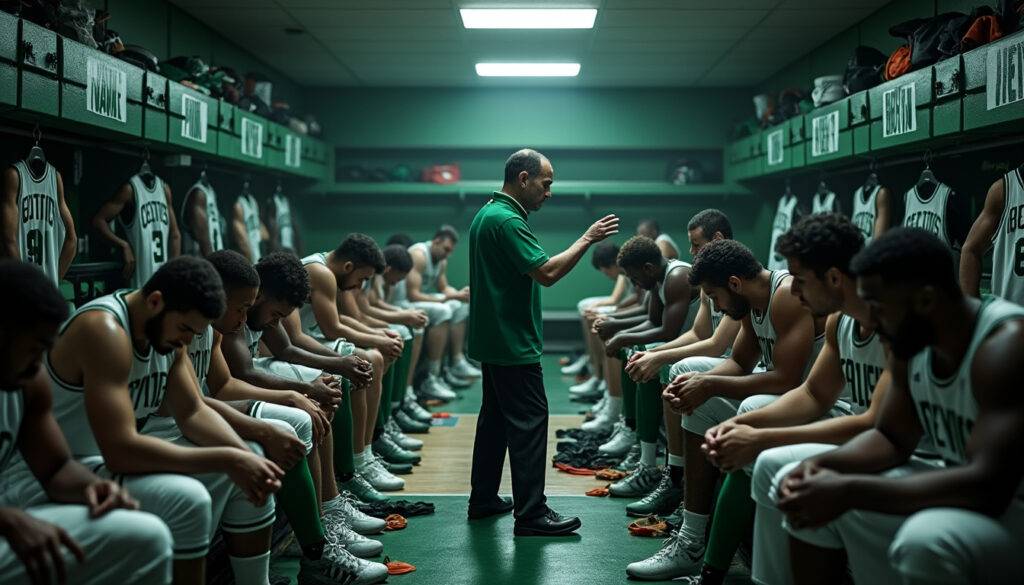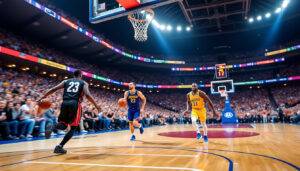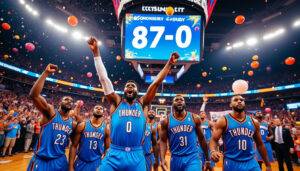After a disappointing defeat, Celtics seek solutions

The Boston Celtics find themselves grappling with an unsettling reality after dropping two critical postseason games to the New York Knicks. Despite holding substantial leads in both matchups, the Celtics have failed to close out games, raising uncomfortable questions about execution, mental toughness, and coaching strategy. For a team that’s historically been synonymous with championship aspirations, such collapses demand intense scrutiny. Fans sporting vibrant Celtics team apparel and clutching tightly to their fan merchandise are left bewildered, hoping the franchise can recalibrate its approach with a blend of savvy coaching, performance training, and renewed focus on sports analytics.
Celtics' Struggles Exposed: Navigating Offensive and Defensive Collapse
Going into the series, few anticipated the Celtics’ unraveling to be so dramatic given their dominant 61-win regular season. Yet, the reality is stark. The Knicks defeated Boston with back-to-back comebacks, erasing 20-plus point leads in each game. This begs the question of how a team prized for its basketball IQ and discipline could falter so severely under pressure.
Key issues dragging the Celtics down include:
- Inexcusable finishes: Blowing a double-digit lead twice points directly to execution failures in crunch time.
- Abysmal clutch shooting: Combining for just 3-of-20 from the field in clutch moments, the Celtics’ stars Jayson Tatum and Jaylen Brown faltered spectacularly.
- Turnover troubles: Critical errors in the final possessions sealed the losses, a glaring problem in such tight contests.
- Inconsistent defense: Despite strong defensive branding in past seasons, the Celtics allowed the Knicks to chip away and seize momentum, exposing weaknesses on the perimeter.
Coach Joe Mazzulla’s decisions also raised eyebrows. Choosing not to call a timeout in the final moments of Game 2 when the Celtics desperately needed to alter their offensive look was seen as a tactical misstep. The lack of adjustment looked naive at best and costly at worst.
The Impact of Player Health and Mental Fortitude on the Court
The Celtics are also battling health setbacks, with Kristaps Porzingis visibly underperforming due to lingering illness. Not feeling at peak capacity has clearly affected his ability to contribute down the stretch, a reality that directly impacts the team’s rotation and overall performance.
Meanwhile, the mental strain of repeated late-game collapses weighs heavily on key players. Jaylen Brown’s candid admission of feeling “antsy” and rushed shooting shines a light on the psychological toll such defeats can take. It reinforces the need for the Celtics’ organizational support system to incorporate robust mental health support alongside their physical training programs.
- Regular sessions focusing on in-game mental conditioning could enhance focus under pressure.
- Performance training tailored to coping psychologically with momentum swings is imperative.
- Team meetings emphasizing accountability and collective responsibility will help shift the mindset from blame to solution-oriented.
This multifaceted approach, combined with strategic coaching tweaks, is essential if the Celtics hope to reverse their fortunes in the NBA playoffs.
Strategic Solutions: What Celtics Must Improve to Reclaim Their Edge
For a franchise with championship pedigree, simply identifying breakdowns isn’t enough. Concrete strategic changes must follow swiftly.
Potential areas for urgent improvement include:
- Shot selection refinement: Emphasizing higher quality looks instead of forced 3-pointers during crunch time.
- Heightened defensive focus: Accounting better for opponent’s momentum and tightening perimeter coverage to halt devastating comebacks.
- Turnover reduction emphasis: Instilling discipline to minimize costly errors in final critical possessions.
- Leveraging analytics: Using advanced sports analytics to dissect late-game play-calling trends and opponent tendencies.
- Team chemistry and mental health prioritization: Sustaining morale through balanced rotations, open communication, and psychological resilience programs.
These changes aren’t just about playing better basketball but about constructing a holistic approach that includes coaching, performance training, and mental health support, all underpinned by detailed analytics to guide decision-making.
With a path forward emerging, the Celtics’ die-hard fan base, always clad in iconic sports gear and team apparel, should stay informed and engaged. For insights into recent playoff dynamics and strategic breakdowns, check this analysis on the Celtics' Game 1 performance versus the Knicks here, and for broader playoff coverage, this resource on NBA second-round matchups delivers comprehensive details.
Fans and Franchise: How Supportive Gear and Analytics Illuminate the Road Ahead
The passionate Celtics fans always show their colors, wearing the latest team apparel and clutching prized fan merchandise, symbolizing an unwavering belief despite setbacks. This cultural backdrop underscores how the franchise must keep evolving its approach.
- Integrating analytics-driven coaching improves the team's adaptability.
- Continuous performance training ensures players peak when it matters most.
- Providing comprehensive mental health support addresses psychological barriers to clutch execution.
- Innovations in sports gear improve player comfort and reduce injury risks, supporting sustained performance.
As the Celtics work through these challenges, their journey serves as a reminder that in the cutthroat environment of NBA basketball, championship glory depends on far more than star power — it demands relentless discipline, smart coaching, and a community that never gives up.

